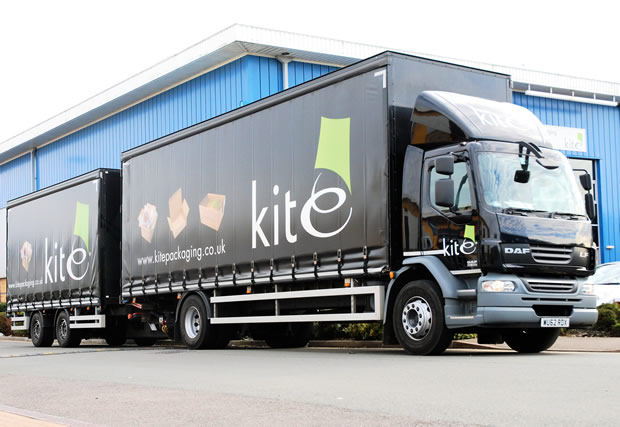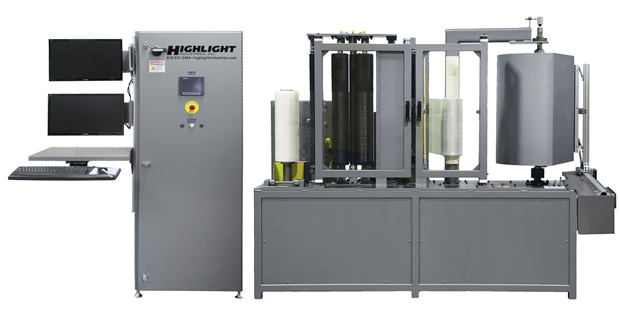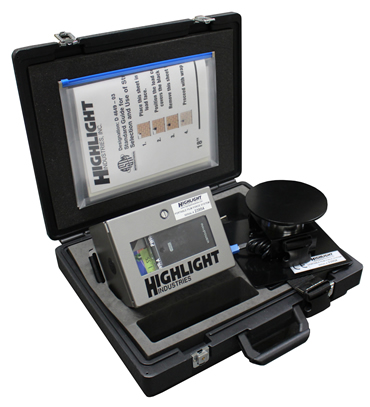With the scale UK businesses operating in the warehousing and freight sectors, the requirement for universal health and safety practice is an essential factor to the successful running of a company. There are undeniable, inherent risks in day-to-day business with the Health and Safety Executive (HSE) reporting that 137 workers were killed at work during the period of 2016 and 2017. Ensuring safe practice is a key responsibility in the workplace with one crucial area being that of load retention. Whether a business is moving goods around in the warehouse or on the road in transit, when it comes to palletised loads, there is no room for potential hazards. Loads that are not wrapped and protected properly can shift on vehicles and even when stationery, often causing accidents and fatalities. In a recent survey, it was found that out of all the businesses asked, less than 50% of their health and safety operators checked load stability and performance of their load retention procedures. Only 26% of those companies using pallet wrap to stabilise loads had carried out a professional film audit. If a business is not auditing the film which is used, it is a shortcoming comparable to not servicing the vehicles they drive. Nationwide loads have to be firmly secured to maintain stability throughout operation, which can be achieved by ensuring the correct application of stretch film and wraps.

So why else is load retention so important?
The result of any disregard for health and safety can carry harsh penalties which businesses cannot afford to be taking in today’s fast-paced world. These can see companies losing their Vehicle Operator Licence and organisations can face prosecution by HSE and even face the prospect of corporate manslaughter if a fatality occurs. Therefore, having consistent, reliable practice in place by maximising the securing of freight and other palletised goods can prevent negligence and penalties. Failing to adopt the correct load retention measures also often means a costly clean-up operation, stock loss, re-delivery and customer dissatisfaction which inevitably results in a damaged brand reputation. Businesses should also be mindful of the ’Roadworthiness Package’ legislation which has come into play this year. The May 2018 legal requirement outlines the worldwide ensuring of packages and unit loads being suitably secured on vehicles to withstand transport conditions and the Freight Transport Association (FTA) advises the high possibility of Europe-wide vehicle load securing inspections at roadside checks.

After hearing this new worldwide directive and seeing figures reported by the HSE, Kite Packaging’s load retention experts wanted to help educate and inform the industry about the legal requirements and offer support to ensure they are being met. Kite would advise businesses incorporate audits in order to reinforce ultra-safe packing and ensure the ultimate palletised operation. These would enable companies to assess and test film quality and performance in a variety of ways and businesses should be working with specialist teams of highly experienced stretch film engineers to carry out these scientific audits. The first audit to consider is the manual pull plate test which looks at how much force is required to pull a circular disc from inside the film on the pallet to measure the security. Another element to the audit process is the electronic force/puncture test which measures the force of the film with electronic pressure pads at the top, middle and bottom of the pallet and sends the retrieved data to a laptop in the form of a graph. This shows how the force of the film changes over time and shows if the film loses retention at critical points on the pallet after being wrapped.
 These are two particularly useful methods which oversee an investigative process for businesses widespread. They evaluate the capability of pallet wrapping machines, test the holding force and optimise machine performance to increase holding force. However if companies want to take a more sophisticated approach, technology lab testing of palletised goods is also available to take an in-depth look at key factors that may impact load stability. This includes elements such as horizontal impact testing, vibration testing, climate change testing and pitch and roll testing which all play a vital part in assessing film stretch capability. Incorporating audits in your business practice proves highly beneficial for a variety of reasons. Once evaluated and optimised in performance, palletised goods can have minimised product damage, thus restoring customer satisfaction and improving brand reputation. The stability and speed of the whole wrapping operation can be maximised, resulting in increased production throughput and enhanced performance. Furthermore, they can offer alternate wrapping facilities which minimise the chance of risk in the workplace. Companies that experience reporting of injuries, diseases and dangerous occurrence regulations incidents (RIDDOR) through manual handling can be offered alternative, automated solutions that remove the risk of injury and all audits can reduce operational costs. If you would like any more information or help with ensuring safe load retention, contact Kite for further assistance www.kitepackaging.co.uk.
These are two particularly useful methods which oversee an investigative process for businesses widespread. They evaluate the capability of pallet wrapping machines, test the holding force and optimise machine performance to increase holding force. However if companies want to take a more sophisticated approach, technology lab testing of palletised goods is also available to take an in-depth look at key factors that may impact load stability. This includes elements such as horizontal impact testing, vibration testing, climate change testing and pitch and roll testing which all play a vital part in assessing film stretch capability. Incorporating audits in your business practice proves highly beneficial for a variety of reasons. Once evaluated and optimised in performance, palletised goods can have minimised product damage, thus restoring customer satisfaction and improving brand reputation. The stability and speed of the whole wrapping operation can be maximised, resulting in increased production throughput and enhanced performance. Furthermore, they can offer alternate wrapping facilities which minimise the chance of risk in the workplace. Companies that experience reporting of injuries, diseases and dangerous occurrence regulations incidents (RIDDOR) through manual handling can be offered alternative, automated solutions that remove the risk of injury and all audits can reduce operational costs. If you would like any more information or help with ensuring safe load retention, contact Kite for further assistance www.kitepackaging.co.uk.




Comments are closed.